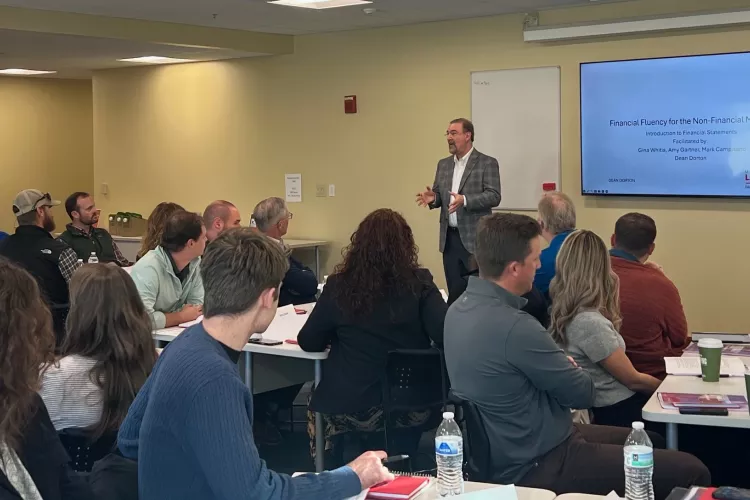
News & Events
Here, we proudly showcase the unique journeys and achievements of our students, faculty and local business partners, highlighting the diverse paths to success sculpted in and out of our walls.
AJ Templeton Is Shaping Louisville’s Next Generation of Hospitality Leaders
Amanda "AJ" Templeton traded Florida’s white sands for the Alpine slopes, building a hospitality career on the power of the unexpected. Now an Associate Professor at the University of Louisville College of Business, Templeton brings a "say yes" philosophy directly into the classroom. For her, hospitality isn't just a word found in a syllabus. Instead, it is a collection of experiences – from sun-drenched beaches to Wyoming ranches – that shapes how she prepares students for the real world.

Upcoming Events
College of Business Graduate Programs - FRIDAY Virtual Info Session
Project Management - Practical Applications
College of Business Graduate Programs - FRIDAY Virtual Info Session
MBA for a Day
MS in Accountancy & Analytics Virtual Info Session
Project Management - Practical Applications
College of Business Graduate Programs - FRIDAY Virtual Info Session
MS in Business Analytics Virtual Info Session
Stay in the Know
Subscribe to the Exchange Newsletter monthly email to stay current on what is happening in and around the College of Business.
Join the Exchange Newsletter
FranchiseU! Podcast
A business podcast brought to you by the Yum! Center for Global Franchise Excellence.










